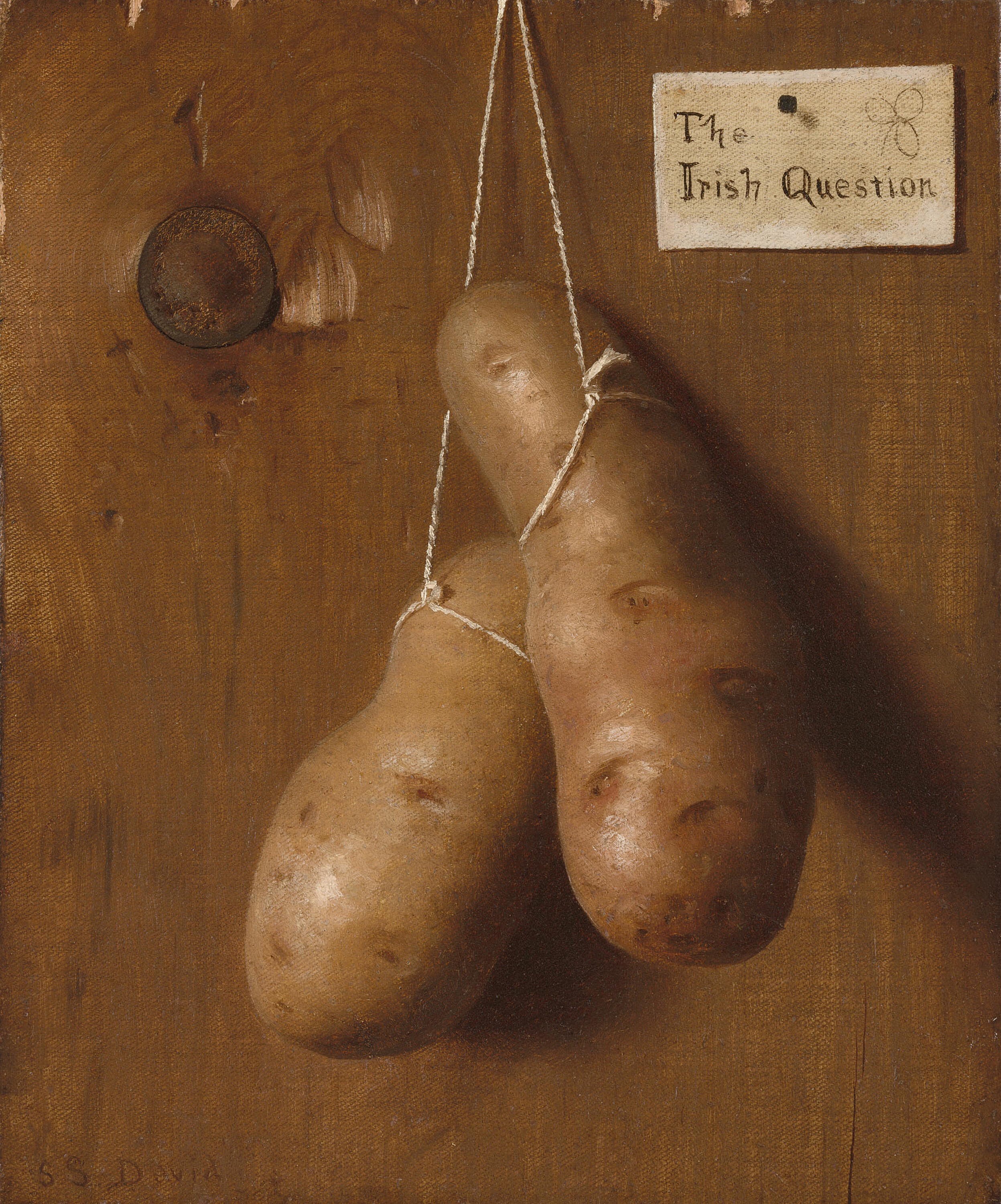QuestioningDichotomies

De Scott Evans: The Irish Question (1880s)
"We all know what happens then."
A decent inquiry seems to follow a predictable trajectory. It begins by making some clear distinctions and defining its territory. Later, this initiating dichotomy starts breaking down as the earlier clear distinction starts evaporating, first a little, and later, a lot. By the end of the investigation, the initial distinction should have almost completely fallen apart such that the beginning arguments might seem utter nonsense, the subject having been rendered nearly absurd by then. Like this series, started in relative innocence, into the nature of Success, I have grown to question my founding premise. I no longer believe in Success as I once presumed it existed. I've reached no definitive conclusion, which is also typical of any genuine investigation. Our expectations might have been utterly poisoned by our too-close exposures to crime fiction, where endings bring resolutions. The real world deals more in enlightening confusions.
It might just be that all dichotomies must ultimately prove to have been fictions. The either/ors, as well as the both/ands, convenient separations but a tad too clever. Black and white images turn out to be primarily comprised of grays of various shades. Even inclusiveness excludes some conditions. These separations might prove convenient for language but lousy for understanding. Those who insist upon the more moralistic characterizations come to seem almost cardboard characters, steadfastly insisting upon two sides to every question but bringing little substance between them. The spaces between and beside always seem to hide the more interesting questions. Indeed, the presented dichotomies seem to insist that the purpose of any inquiry simply must be to permanently settle some question, to cement the dichotomies, rather than to question them, to stop asking rather than to continue questioning.
I once believed Success to be a sort of possession, some property that one came to own and could hold without fear of losing, one and done. I noticed, though, that merely achieving some Success rarely settled anything. Indeed, achieving often tended to undermine one's purpose, which was often tied to the pursuit of Success and rarely to the actual possession of it. Also, the very stuff of which Success seemed to have been constructed proved less conducive to actual possession than I'd earlier assumed. Aside from some recognition, little remained for adoration. The bowling trophy never was the Success, however gratefully the bowler received it. It sparked little passion from its inevitable place on the shelf. Successful seemed to quickly transform into just another HasBeen. When was that ever different?
So just when a reader might feel poised for their author to provide a clear conclusion, it seems increasingly likely that he'll probably find some clever way to side-step that reduction. He might still avoid some measure of public humiliation, but not as long as the originating distinction remains in place, for Success, the subject of this series, no longer means much of any distinct anything anymore. It might well be forever after also known as its own opposite, a concept capable of simultaneously representing its former distinctive definition as well as its contradiction, given certain conditions, for the original distinction only ever worked within some presumed universal context when contexts do not ever come in universal flavors. Each concept resonates its space, and so proves more chameleon than camel. It changes color whenever its background color shifts, sometimes even seeming invisible, depending. What once stood starkly contrasted slips into inevitable shadow. What once seemed to spark few questions comes to elicit no definitive answers. The inquiry becomes the purpose, much more than strict definition ever was.
I close this consideration with another innocent dichotomy. The purpose of asking need not ever be the elicited answering, but the following question that question encourages. Successful communication need not eliminate the need for further communication but might sometimes instead fuel more infinite conversation, by which I mean one never hankering to be finished conversing. Definitive resolution can certainly prove satisfying but can also prove rather wearying. One eventually wonders what they might do after they've managed to figure out everything, that they've bartered away their very purpose for engaging, for being. Those seeking answers might eventually come to the end of their stories. We all know what happens then. They enter The Great Dichotomy again.
©2023 by David A. Schmaltz - all rights reserved


